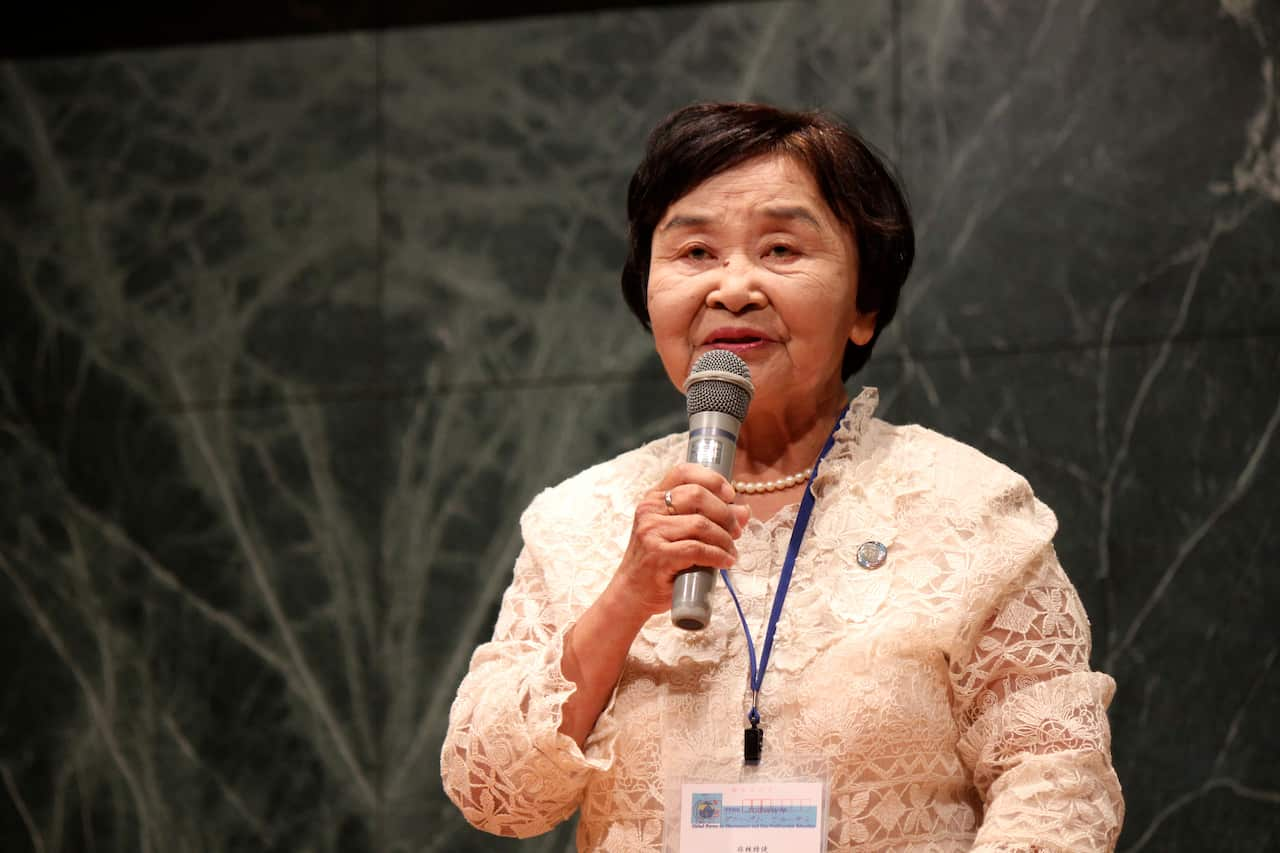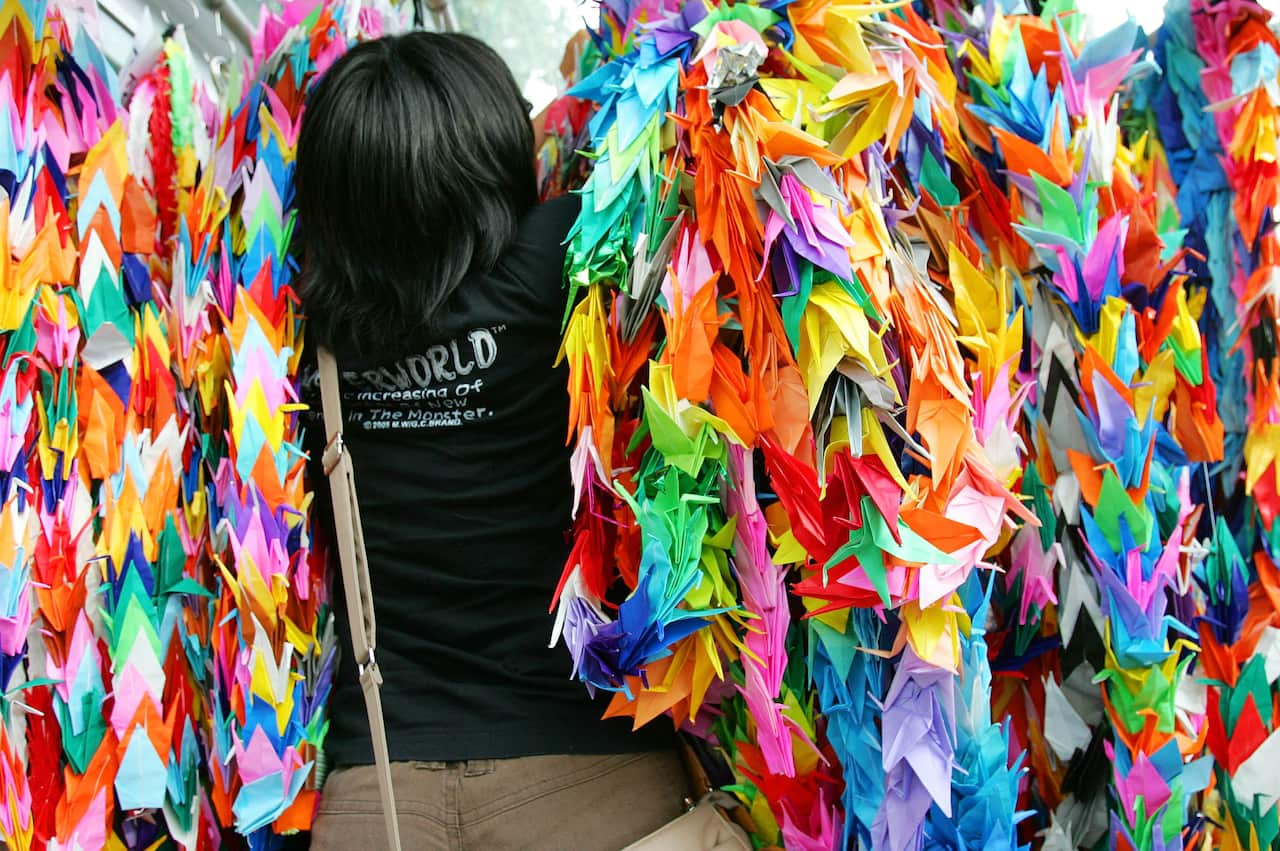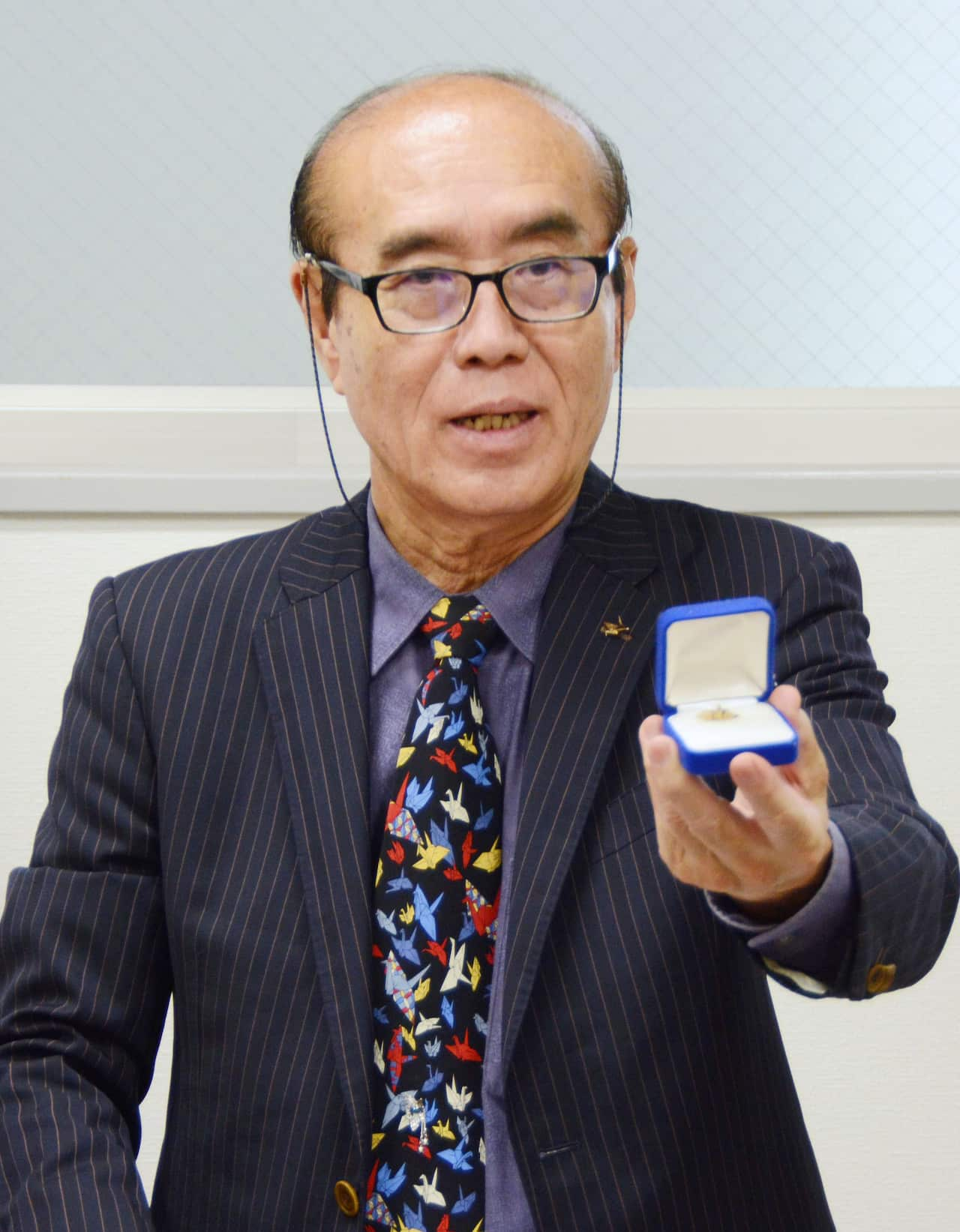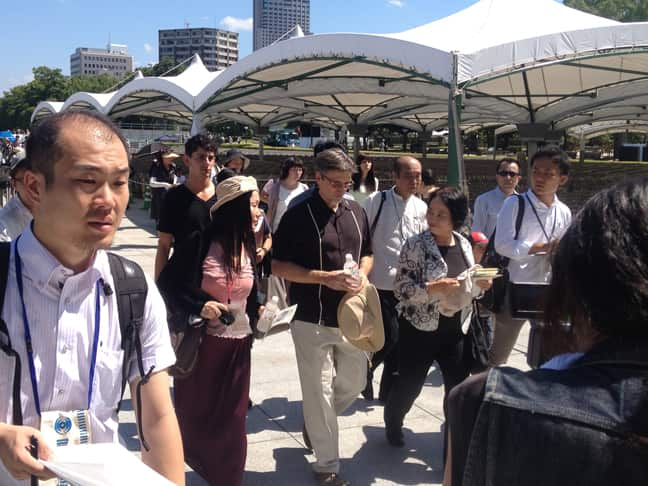Over the years, I have met dozens of World War II veterans who shake my hand and tell me that if my grandfather hadn’t ordered the use of atomic bombs against Japan, they would likely have died in an invasion of the country’s home islands.
I also have friends who have suffered terribly because of my grandfather’s decision. They are survivors of Hiroshima and Nagasaki.
On this the 70th anniversary of the bombings, we honor both.
In 1947, on a state visit to Mexico, my grandfather laid a wreath at the monument to Los Niños Heroes, six teenage Mexican Army cadets who died defending their military academy against American forces 100 years earlier. When reporters asked him why he had honored former enemies, my grandfather said, "Brave men don't belong to any one country. I respect bravery wherever I see it."
Likewise, suffering and sacrifice don’t belong to any one country. We must acknowledge it fully and honestly to move forward in peace.

Sakue Shimohira and her younger sister, Ryoko, survived the bombing of Nagasaki huddled in the back of a hillside cave shelter. The rest of their immediate family was killed. The girls, then 10 and 7, lived first with relatives in the country then under a bridge. They were sickened by radiation. Sores on their bodies would not heal.
Sakue often says there are two kinds of courage: the courage to live and the courage to die. She chose the former. Ryoko chose the latter and stepped in front of a train. She was still a child.
“I think the basic idea of peace,” Sakue said, “is to have some understanding of others’ pain.”
INTERACTIVE FEATURE: A story of survival - 70 years on from Hiroshima
The late Orval Amdahl, a Marine artillery captain, dreaded the land invasion he and his men were planning for and breathed a sigh of relief when Japan surrendered. Yet when he stepped ashore at Nagasaki, he was appalled at the destruction. Encouraged to take a souvenir, he brought home an officer’s sword. In 2013, he gave it back to Tadahiro Motomura, son of the officer who had surrendered it. Mr. Motomura honored the gesture by coming to St. Paul, MN with his family to receive the sword.
Fred Mitchell barely escaped as kamikazes destroyed his ship, the USS Drexler, and killed most of his friends. For decades afterward, he harbored a deep hatred for the Japanese. Finally, unable to tolerate the poison anymore, he traveled to Japan and met – and befriended – some of the men who had been trained to kill him.
“Looking at these old Japanese men who didn’t look much different from me … it was just so hard to believe that we were trying to kill each other,” he said. “They were of the same mind as we were. There comes a time to end the hatred.”

My friendship with survivors of Hiroshima and Nagasaki began with a little girl named Sadako Sasaki. She was two when the first atomic bomb destroyed her hometown, Hiroshima, in 1945. She and her family survived.
Nine years later, Sadako was diagnosed with radiation-induced leukemia. To help in her treatment, she followed a Japanese tradition that says if you fold 1,000 origami paper cranes, you are granted a long life and good health.
Sadako folded about 1,500 cranes, but died of the leukemia in October of 1955. A monument to her and to all the children killed, wounded or sickened by the bomb stands in Hiroshima’s Peace Memorial Park today.

I met Sadako’s older brother, Masahiro, and her nephew, Yuji, in May of 2010 in New York. They were donating one of Sadako’s final cranes to the World Trade Center Memorial as a gesture of healing.
During that meeting, Yuji dropped a tiny paper crane into my palm. It was the last one Sadako folded before dying. That little crane impelled my trip to Japan and the memorial ceremonies in Hiroshima and Nagasaki.

Sadako wanted to live her life in a world free of war and nuclear weapons. Though she has been immortalized in books and on film, not many of her own words remain.
Those that do are simple, heartfelt and should be a guide for the rest of us on this 70th anniversary of the end of the war and the first and only use of nuclear weapons against human beings.
“I will write peace on your wings,” she said off her flock of paper cranes. “And you will fly all over the world.”
Clifton Truman Daniel appears on Insight, 8.30pm Tuesday on SBS, which speaks to the descendants of key WWII decision makers.
WATCH PREVIEW
Insight is Australia's leading forum for debate and powerful first-person stories offering a unique perspective on the way we live. Read more about Insight
Have a story or comment? Contact Us


